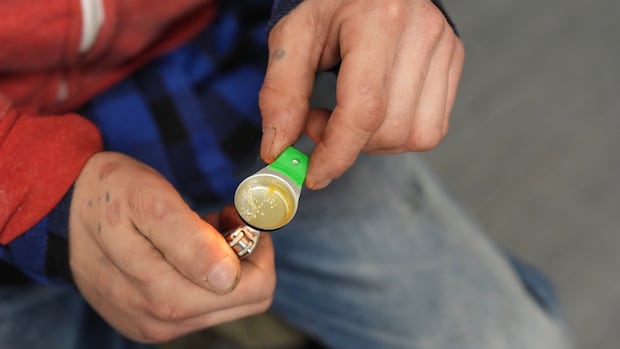[
There were more opioid-related deaths in March than in any previous month on record in the Edmonton zone, according to the latest government data.
Two experts say more should have been done in the lead-up to the spike in fatalities.
Eighty-seven people died of opioid drug poisoning in March, making that the highest amount of opioid-related deaths in Alberta’s capital region since authorities began tracking it publicly in 2016.
“It’s very horrific, frankly, to see such a big spike in deaths in Edmonton,” said Elaine Hyshka, Canada Research Chair in Health Systems Innovation at the University of Alberta School of Public Health.
“We’re almost 10 years into this crisis. And so the fact that the numbers here are getting a lot higher, it’s really troubling.”
Since August 2023, the number of fatal opioid drug poisonings has been mostly on a downward trend, dropping to 33 deaths last September before it started to increase again.
Hyshka said there was a spike in calls to emergency medical services at the beginning of 2025, and given that, the province should have issued a public warning.
“When we are experiencing a period of heightened overdose, the public has a right to know,” Hyshka said.
“People should be warned to take as many precautions as possible.”

But the province said in an email that the EMS response to opioid-related events by week have fluctuated in the first three months of 2025, ranging from between 40 to about 230 responses.
The province also noted a “concerning” growth in the use of carfentanil.
“We’ve been monitoring the situation closely along with our municipal partners,” Nathaniel Dueck, press secretary for the ministry of mental health and addiction, wrote.
“In all of 2024, carfentanil was involved in 16 per cent of opioid-related deaths in Edmonton. This has increased to 70 per cent for the first three months of 2025.”
Marliss Taylor, a harm reduction expert and registered nurse in Edmonton, agreed with Hyshka’s call and said additional services should be offered during such times.
Taylor said the influx in carfentanil, an increase of adulterants in the drug supply, and major drug busts that destabilized that supply are some of the reasons for the spike.
Another factor, Taylor said, is that more Edmontonians are using substances in isolated environments due to encampment removals and fewer frontline workers.
“There are less overdose teams out there,” Taylor told CBC News Wednesday. “There are less outreach workers that are available to help the community deal with this”.
Dueck said the province is monitoring the situation closely in the Edmonton region, but at the provincial level the situation looks much different.
“Province-wide, there were 117 opioid-related deaths in March 2025 — up from 91 in February 2025, but down from 126 in March 2024,” Dueck said.
Dueck noted that Edmonton accounted for almost all of the increase provincially.
He said Alberta started accepting clients at three of its recovery communities starting in May 2023, with eight more being established as part of its response to the addiction crisis.
The province also said it added more than 10,000 publicly funded treatment spaces and removed daily user fees for residential treatment.
